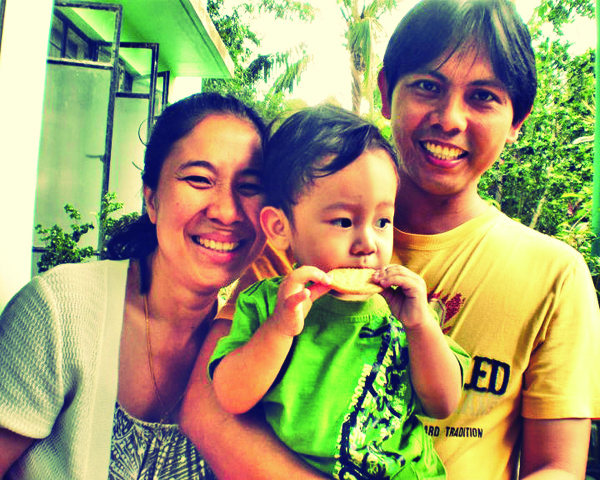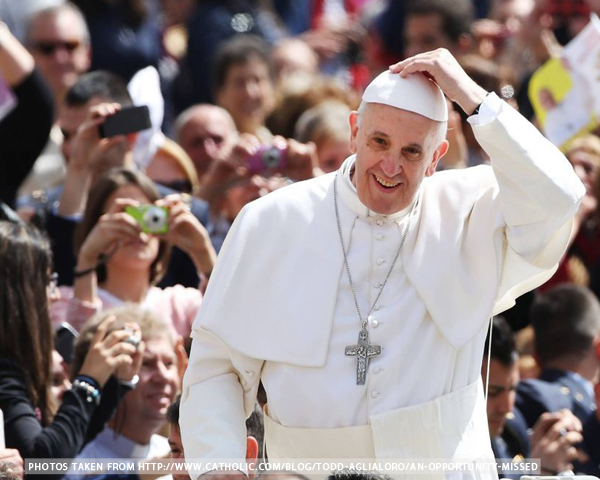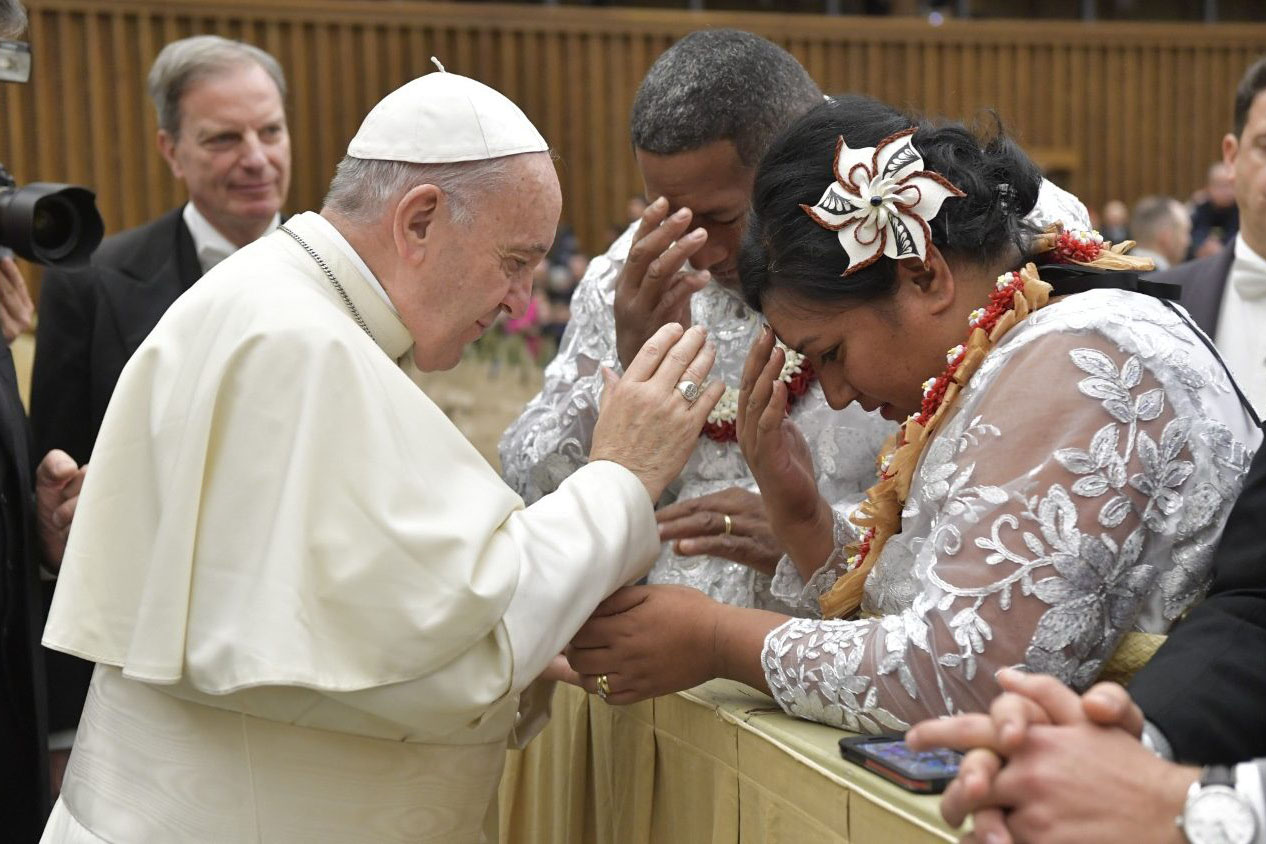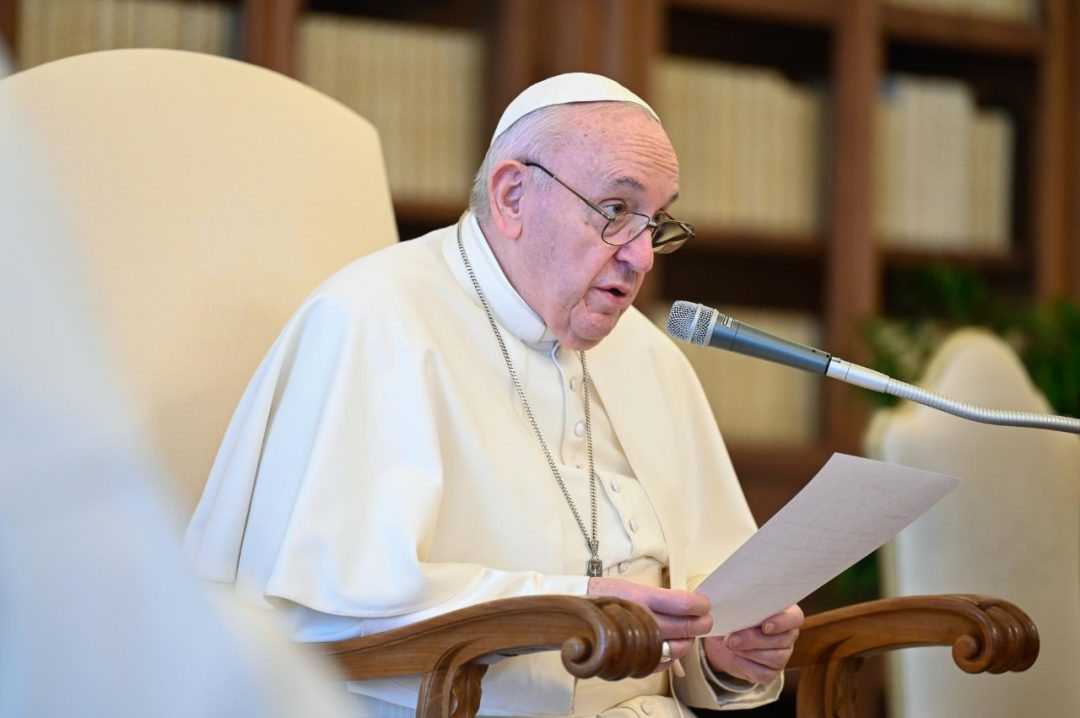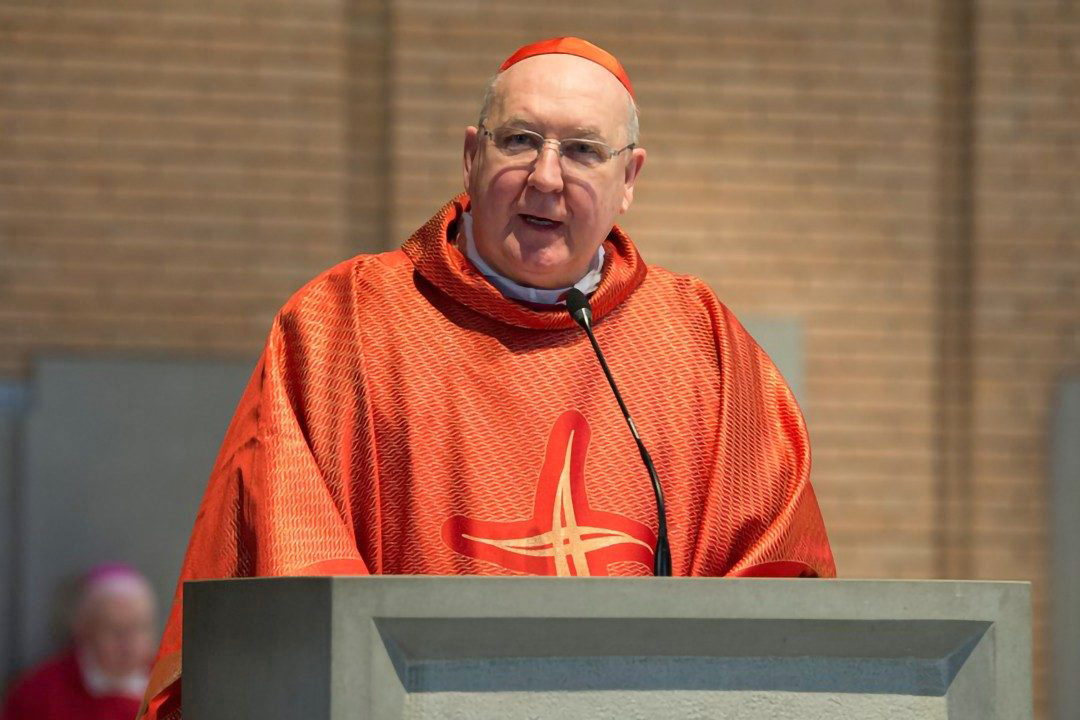by Dan Ticman
I got married at the age of thirty six last 2009. That was three years after I left the priestly formation. So far my experience as a family man or as a husband to my wife and as a father to my son is wonderful and very “gracious”. Our son is only four years old but in his young age we are already instilling in him the many important values in life that one must assimilate and live as a Christian. We want him to have the life of prayer and total trust and dependence on God. We explain to him that every blessing and every good thing that comes to him is from God and that he needs to give thank to God incessantly and sincerely for all those things. This is his prayer always and every time we go to Mass on Sundays. Patiently, we are doing our best to inculcate in him that firm belief in our all-benevolent and all-loving God. It is not that easy of course considering that he is too young, but repeating these things to him until such time that he can already comprehend this mysterious reality is an effort that would not go unrewarded. The best way to do this, however, is to demonstrate this in our life: in our words and deeds. We put our best effort in making sure that our son never hears any unkind or not good word and never sees uncharitable or any un-Christian deed from us, his parents, and even from our house-help.
Another virtues that we would like our son to live are simplicity and charity. We know for a fact that at this present age what thwart our young people from living the values of the Gospel are the forces of materialism, consumerism, narcissism, and hedonism. These realities pose a tremendous challenge to every parent of today, especially to Catholic parents. In my best reflection and from what we can derive from the lives of our models in living a life of holiness the most effective weapon in battling these challenges is to make an effort to live a simple life and to couple this with charity to people. This, in effect, pushes us and demands from us that we ourselves must live the life of simplicity and charity. We have to witness this life of holiness to our son. At this point, I draw my inspiration from the bishop’s exhortation to the newly ordained priest during the ordination rite as he handed over to him the Holy Bible: “believe what you read, preach what you believe, and practice what you preach”. Truly, the most difficult challenge in living the Christian faith is the practicing of the virtues and the principles of Christian life which in most cases we are all very familiar with. Luis Antonio Cardinal Tagle, he was still Fr. Chito Tagle then, once told us in one of our classes (I was taking my course on Ecclesiology with him that time at Loyola School of Theology) that the family is the “domestic Church” where the father is the “parish priest”. Just like priesthood the vocation to the married life is also about self-giving, self-sacrifice, service, and the rendering of true and unconditional love. I remember what Msgr. Sabino Vengco, my professor in my course on the Sacrament of Marriage (also at the Loyola School of Theology), said that “without real faith (meaning: true and mature Christian faith) marriage is a theological nonsense”.
It is true that there will be a lot of challenges that would come our way as a family but with God’s grace and with our strong desire to live a truly Christian life we will be able to surmount every challenge that would come our way. If you ask me what prepared me for this very difficult role in life that I now bear as a parent, my ready answer would be: it is my personal maturity and spiritual formation. These are the very blessings that God has bestowed on me during my seminary life. The same is true in the case of my wife who also spent ten years of her life in the convent as a nun. Thus I would say that for the vocation to the married life maturity in the Christian faith is of primary importance. It is an indispensable prerequisite. I would say that it is the key to having a meaningful and wonderful family life.
We know very well that the challenges which we will be facing as a Catholic family would grow harder and harder as our son grows older and older, but we believe that to be able to arrest the possible existence of some future heart-breaking and spirit-breaking challenges in forming our son to become a good Catholic we have to secure the foundation as early as now and as best as we could. Time will come when we can no longer watch his every step and follow his every move in order to guide him in all his ways, but during those times our confidence and belief that he will always do the right thing will rest on the confidence and trust that we have on how much we have securely built his Christian foundation. That even if his parents are not looking on he would not do anything wrong because he knows that this would displease God and make his parents unhappy.
At the end of my reflection I would say that the best way to become a good parent is to live the Christian faith. There is no better way to teach our family how to live a truly Christian life than to do this by way of example. Being a parent, I would say, is a very challenging role for every individual. This is mainly because there is no such thing as a “concrete preparation” for parenthood unlike for instance when one wants to become a priest or a nun. Learning to become a good parent is a personal task that comes in a very personalized process. There is no particular “formation” for this in any formation house. Likewise, there is no such course for parenthood in any school or university. We can learn this in the school of life with Jesus Christ as our Teacher.
Danilo Ticman is the campus minister of Claret School of Quezon City. He is happily married and is blessed with a son.


